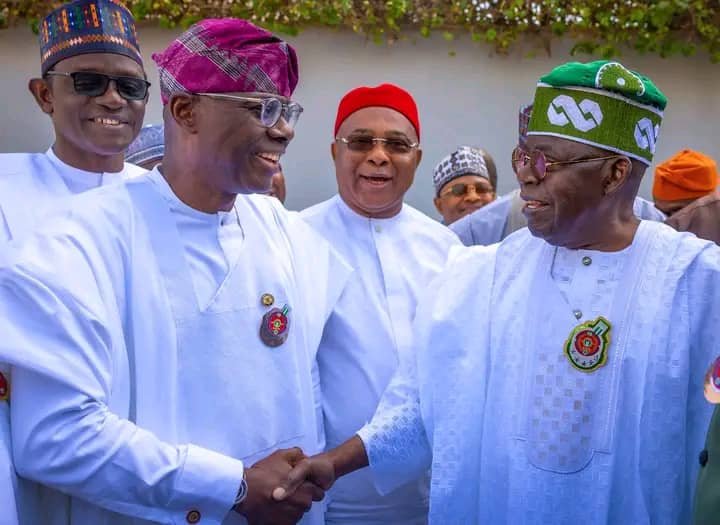The Federal Government of Nigeria finds itself at odds with state governors and the private sector over the proposed minimum wage increment, as revealed in recent findings by Saturday PUNCH. Despite pushback from governors and private sector entities against a minimum wage exceeding N60,000, the Federal Government appears resolute in its stance, leaning towards a figure as high as N65,000.
While negotiations unfold, it’s evident that the Federal Government may be inclined to endorse a minimum wage of N65,000, a move met with resistance from governors and the organized private sector, who argue that anything beyond N57,000 could strain state resources, hindering development projects.
The negotiation table remains active, with Organised Labour and the Federal Government engaging in a back-and-forth of offers and counter-offers. Organised Labour, represented by the Nigeria Labour Congress and the Trade Union Congress, has rejected the Federal Government’s N60,000 proposal, instead adjusting their stance from an initial demand of N497,000 to N494,000.
Prominent members of the Tripartite Committee overseeing the negotiations disclosed that the Federal Government and the Organised Private Sector proposed a N60,000 monthly minimum wage, up from their previous offer of N57,000. Despite earlier proposals of N48,000 and N54,000, which were deemed inadequate by Organised Labour, the Federal Government appears committed to finding a resolution, even considering a wage as high as N65,000.
However, the deadlock persists as discussions fail to yield a consensus on the new minimum wage. The labour unions argue that the current N30,000 minimum wage, which expired in April 2024, no longer sustains the average Nigerian worker’s livelihood. This sentiment is echoed by NLC President Joe Ajaero, who criticizes the proposed increments as insufficient to meet workers’ needs.
The impasse resulted in a nationwide strike initiated by the unions, disrupting economic activities across the country. While the strike was brief, it underscored the urgency of resolving the minimum wage issue.
Following extensive discussions, an agreement was reached between the Federal Government and Organised Labour, signaling President Bola Tinubu’s commitment to establishing a national minimum wage higher than N60,000. However, this agreement is met with skepticism from governors, who question the feasibility of sustaining wages above N60,000 given the states’ financial constraints.
Despite the resistance from governors and private sector players, the Federal Government remains steadfast in its pursuit of a minimum wage increase, signaling a potential shift in the country’s labor landscape. As negotiations continue, the outcome will undoubtedly shape the future of labor relations in Nigeria.

